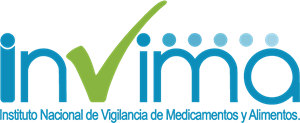Following an inspection earlier this month, Colombia’s FDA has suspended all human research at a facility that until this summer had been receiving U.S. funding to develop a malaria vaccine.
The Malaria Vaccine and Development Center, in the city of Cali in western Colombia, is part of the Caucaseco Scientific Research Consortium, which is run by husband-and-wife team Myriam Arévalo-Herrera and Sócrates Herrera. The couple has secured more than $17 million from the U.S. National Institutes of Health (NIH) since 2003.
As we reported in April, an investigation by the group People for the Ethical Treatment of Animals (PETA) exposed a host of serious problems at the facilities, including widespread animal abuse and falsified research approvals. The NIH defunded the facilities in June, as first reported by STAT.
According to a statement released on August 5 (in Spanish), the Colombian National Institute of Drug and Food Surveillance (Invima) made the following findings during its inspection of the Malaria Vaccine and Development Center:
- The center was not certified by Invima in Good Clinical Practices (GCP) and thus was not authorized to conduct clinical trials.
- Documents found at the center described clinical studies that had been performed without mandatory approvals from Invima and ethics committees.
- Studies had been conducted without written informed consent from participants.
- In some clinical studies, the principal investigator was not a physician and other researchers were not registered as health professionals.
- Scientific publications from the center described studies in humans that had been performed without regulatory approval. These publications also cited approval by an ethics committee whose participation was not supported by any documents.
- Study participants were paid 250,000 pesos (about $60), in violation of local regulations.
- The study designs appeared to violate ethical standards, as previously healthy people were exposed to disease in order to measure vaccine immunogenicity, without considering risk control or following established procedures for this type of intervention.
- For these studies, ethics committees were not provided adequate information to ensure the safe and ethical conduct of the research.
Based on the agency’s findings, Magnolia Martínez of PETA, who led the group’s investigation, has emailed more than a dozen journals requesting retractions of papers citing the nonexistent ethics approvals.
The journals include Frontiers in Immunology (two papers), PLOS Neglected Tropical Diseases (11 papers), PLOS One (three papers), Nature Communications and Nature Genetics (one paper each), Redox Biology (one paper), Malaria Journal (six papers), Vaccine (one paper), The International Journal of Infectious Diseases (one paper), Infection and Immunity (one paper), Journal of Personalized Medicine (one paper), Colombia Médica (one paper), Memórias do Instituto Oswaldo Cruz (one paper).
Like Retraction Watch? You can make a tax-deductible contribution to support our work, follow us on Twitter, like us on Facebook, add us to your RSS reader, or subscribe to our daily digest. If you find a retraction that’s not in our database, you can let us know here. For comments or feedback, email us at [email protected].

The NIH should NOT be funding international research. It is NOT the IIH (International Institutes of Health). It is the National Institutes of Health. When I reviewed grants 2003-2018 for NIH, PCORI, and NASA, I would speak up and protest loudly at the meeting regarding international funding. I would always score such grants, regardless of quality, as low as possible.
Grant funding should support US scientists. We have no responsibility to fund non-US work.
So you are declaring that you don’t base your evaluations on scientific quality but nationalistic sentiments 🤔
Not only that, but declaring that reseaarch outside the USA is of no concern to those inside the USA, the results will not have any effect on Americans at all! Particularly ironic given the increase in leproy and malaria in the southern states.
How could the “National” Institutes of Health not be nationalistic?